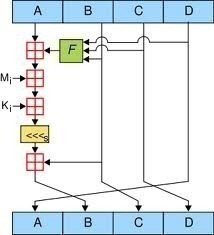
Rubber Hose Cryptography refers to a file system in which multiple archives are encrypted and hidden on the same disk in a way that makes each archive appear to be the size of the entire disk. Rubber Hose Cryptography is often used to hide illegal or confidential information in an attempt to prevent theft or detection of the hidden data. Because each archive must be decrypted separately and rest atop one another in layers, no archive in a Rubber Hose file system knows anything about the other archives. This prevents a data thief from discovering hidden data in one archive if he/she is able to decrypt a separate archive.
How Rubber Hose Cryptography Works
Rubber Hose Cryptography works by filling the entire hard drive with random characters that are indistinguishable from encrypted data. The file system then takes each archive of real data the user has, breaks it into small pieces, and scatters it around the hard drive in random places. While the file system keeps a map of where all the pieces were scattered, each archive has its own map and requires its own encryption key. Without having all encryption keys, the file system will not display any real information and each archive that has been decrypted will appear to be the same size of the full hard drive. By doing this, Rubber Hose Cryptography is immune to both mathematical analysis and physical disk testing.
Applications
Rubber Hose Cryptography is rarely used or modified, but is available via Linux Kernel 2.2, NetBSD, and FreeBSD. Rubber Hose Cryptography was designed to protect the users of encrypted systems, who can be prosecuted in some countries for not turning over the encryption keys of a server. Rubber Hose Cryptography allows a user to provide the police, or another organization, with the encryption key of a false archive which will appear to be the entire volume of the hard drive.




Follow Us!